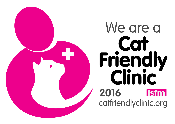DENTAL CARE FOR PETS
Dental disease and infected gums are very common in dogs and cats. It can make them ill and cause a significant ammount of pain and discomfort, and it is certainly not good for their general health to have an infected mouth It can be a focus of infection that can be linked to heart and kidney disease. Neither is it pleasant to have a pet with halitosis.Because animals generally realy want to eat they will often carry on eating despite mouth problems that cause a significant ammount of pain. We regularly see pets with serious gum disease, loose teeth and dental abcesses that are still eating.
Dogs of different breeds seem to be very differently affected by dental tartar accumulation and the associated periodontitis that leads to tooth loss. Toy dogs all have relative dental crowding - Yorkies have just a smany teeth as Great Danes - and the long nosed dogs like greyhounds and dachshunds seem to get a lot of dental tartar. Flat faced & even dogs with slightly shortened skulls (Cavaliers, Lhasas) often have premolars that are not in line. Plaque accumulation leads to gingivitis and peirodontal disease with painful gum infections and loose teeth.
There is a website where you can work out your dogs risk of dental disease by answering some questions at www.uk.pedigree.com/gum-disease-risk-checker Other brands of dental treats are availabe!
Cats, in addition to periodontal disease can get erosive lesions in the teeth at the gum margin which are often painful called either 'neck lesions or FORL's (Feline Odontoclastic Resorptive Lesions). These can be very painful and the only treatment involves extraction.
Dirty teeth generally need thoroughly cleaning under a general anaesthetic (they are often sore and dogs and cats do not sit quietly like we do at the dentist!) and loose teeth need extracting. We will generaly not know how many teeth need extracting until we can examine them under anaesthetic.We often have to use probes to identify pockets of deep gum infections and sometimes xrays. We have sophisticated equipment for both scaling and polishing teeth plus high powered dental drilling equipment to help extract some of those tricky multi-rooted teeth dogs and cats have.
Home teeth cleaning in dogs and cats is a 'good idea' but can be difficult. However it can be worthwhile in dogs prone to dental disease. Teeth cleaning is something to start in young dogs so that they become used to it. If you start trying to clean the teeth in an older dog with sore gums it is unlikely to be effective or tolerated by the dog. It is unlikely that it will ever be performed as effectively as we can clean our own teeth and studies have shown that it must be done an absolute minimum of 3 times a week to have any benefit. Use a soft toothbrush or a piece of microfibre cloth, and a pet toothpaste (meaty not minty!). The Vet or Vet Nurse will discuss this at your post-op check.
There are many products such as chews & diets available which claim to reduce tartar and plaque build up and the ensiung gum disease. Those recomended by the Veterinary Oral Health Council have been trailed & shown to have some effectiveness (though daily brushing is best!). Some products marketed for dogs to chew and keep teeth clean are very hard and may result in tooth injury - you should be able to indent any such item with your thumb nail, if you can't it is too hard for your dog to safely chew on.






